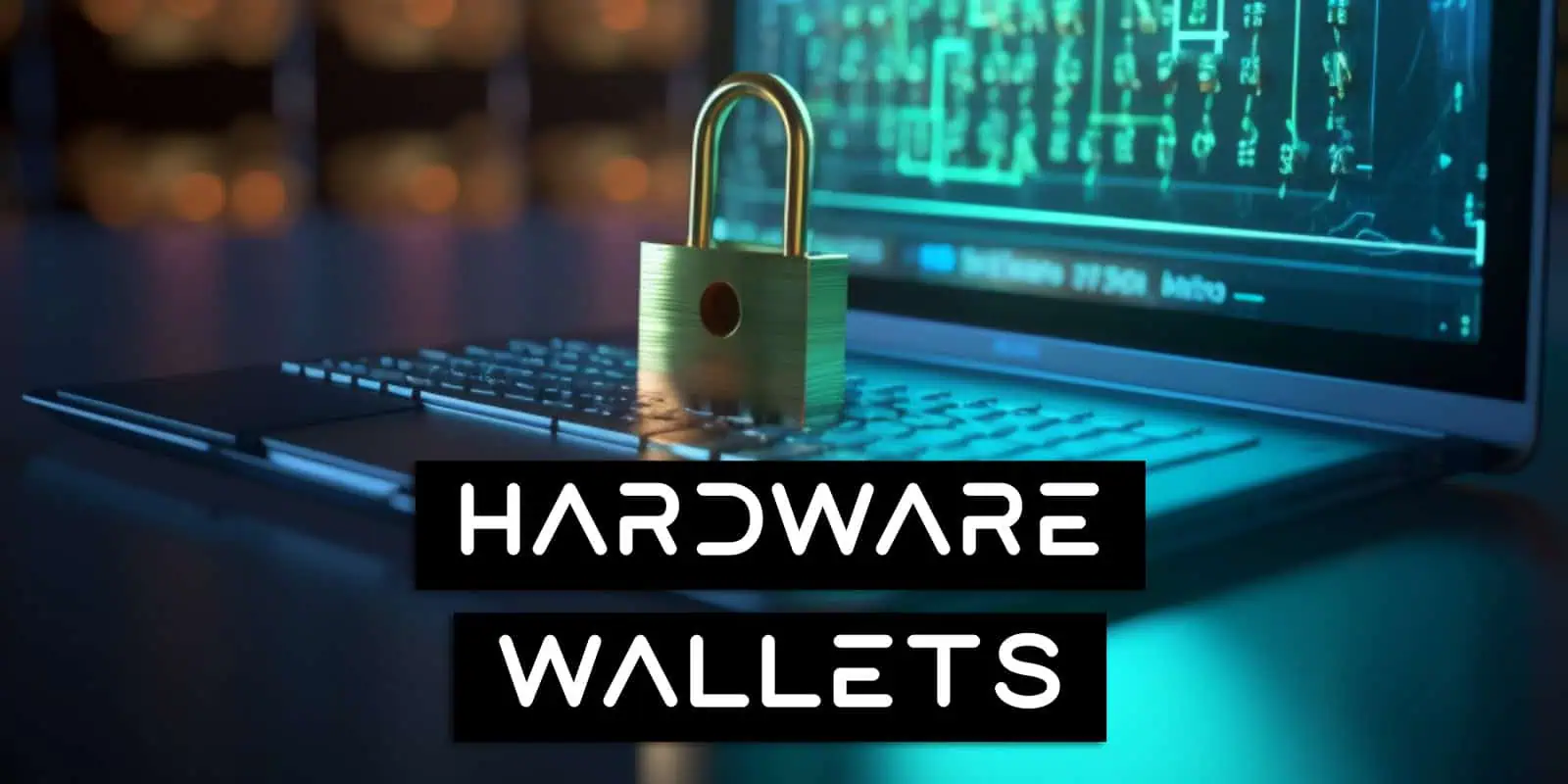Looking to step up the security of your crypto? Enter the Hardware Wallet, a cutting edge device specifically made to keep your private keys as safe as possible. Don’t be like all the others that have lost their bitcoin to exchange hacks or malware, instead say hello to true peace of mind with this vital tool!
Contents
What Is A Hardware Wallet?
A hardware wallet is separate, physical device that’s used to generate, store and manage your private keys entirely offline, adding an extra layer of security to help protect you from threats like hacking or malware. They can take many forms including looking like USB drives, small calculators, credit cards or small smartphones.
Many mistakenly believe hardware wallets “store” or hold their crypto in them, however hardware wallets only store your private keys. Cryptographic keys are what give you authority over your bitcoin which are actually stored on the Blockchain.
Most hardware wallets work with many different cryptocurrencies and their associated blockchains, but some are Bitcoin only.
How Does A Hardware Wallet Work?
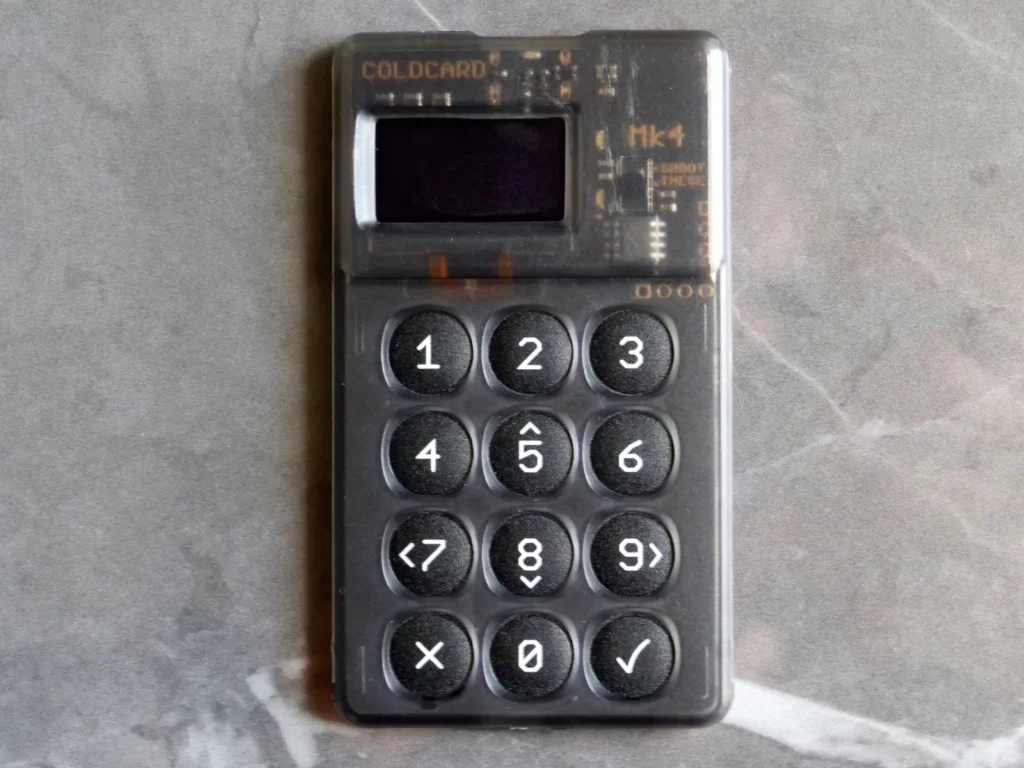
A hardware wallet works by performing three primary responsibilities, they:
- Securely generate your cryptographic keys with true randomness
- Securely store your cryptographic keys to protect them against hackers and physical attacks
- Display and sign transactions with your private keys while keeping them safe and offline
Hardware wallets achieve this thanks to specially designed hardware that can properly generate true randomness when generating your cryptographic keys. This hardware is usually a True Random Number Generator (TRNG).
Most also then store your cryptographic keys in a Secure Element chip, which acts like a digital bank vault. These special chips are built to withstand sophisticated, in person physical attacks such as attackers injecting weird voltages into them or even delidding the chip with lasers
This extra physical security, combined with the fact that your private key is never connected to the Internet, hugely reduces the risk of an attacker stealing your bitcoin.
We recommend thinking of hardware wallets as “Key Managers” as this more accurately reflects what they truly do in practice. They generate, store and manage your cryptographic keys. This is similar to how a Password Manager is responsible for generating, storing and managing your passwords.
What Are Private & Public Keys?
So now that you understand hardware wallets store and manage user’s private keys, you’re probably wondering what the hell a private key is?
Your cryptographic keys are made up of two keys, your Private Key (xPriv) and your Public Key (xPub). A private key is what allows you to spend your bitcoins on the Bitcoin network and looks something like this:
185082410266061011419354707831708373725981652362318265124838197206310542791322
This huge random looking number is obviously impossible for normal people to remember so modern wallets instead use this to generate your Mnemonic Sentence.
This is either 12 or 24 words that most wallets provide to you and ask you to store in a safe place. The Mnemonic Sentence is most commonly referred to as a Seed Phrase, but it also goes by the names Mnemonic Words, Seed Recovery Phrase or Backup Seed Phrase.
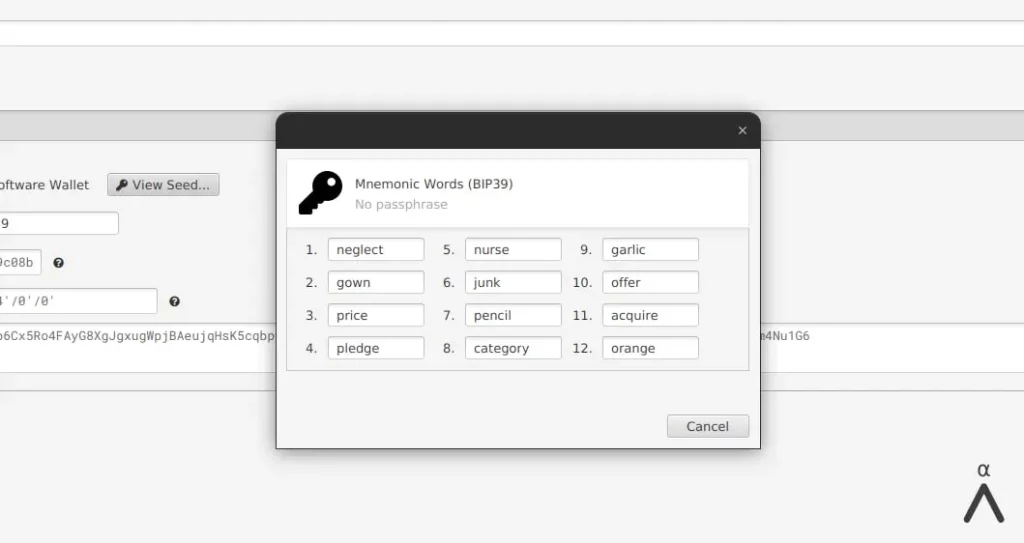
Once your private keys have been generated for you, a set formula is used to derive your corresponding public keys. Public keys are used to generate receive addresses so that others can send you funds. So in summary:
- People use your public key to know where to send you bitcoins
- You use your private key to spend those bitcoins
- Your Mnemonic Sentence is generated from your private key and is just 12/24 words
There’s a lot more to cryptographic keys including how these private keys are generated, how the Mnemonic Sentence is generated, passphrases, how keys are used to sign transactions and more, but it is outside the scope of this piece. That’s why we have a totally separate piece that explains What Public And Private Keys Are.
Hardware Wallet Vs Software Wallet
Understanding the difference between a software wallet and a hardware wallet can be a bit tricky at first. This is because there’s so many different software programs and hardware devices out there and many of them have a lot of overlapping functionality. Again though, it all revolves around your two cryptographic keys.
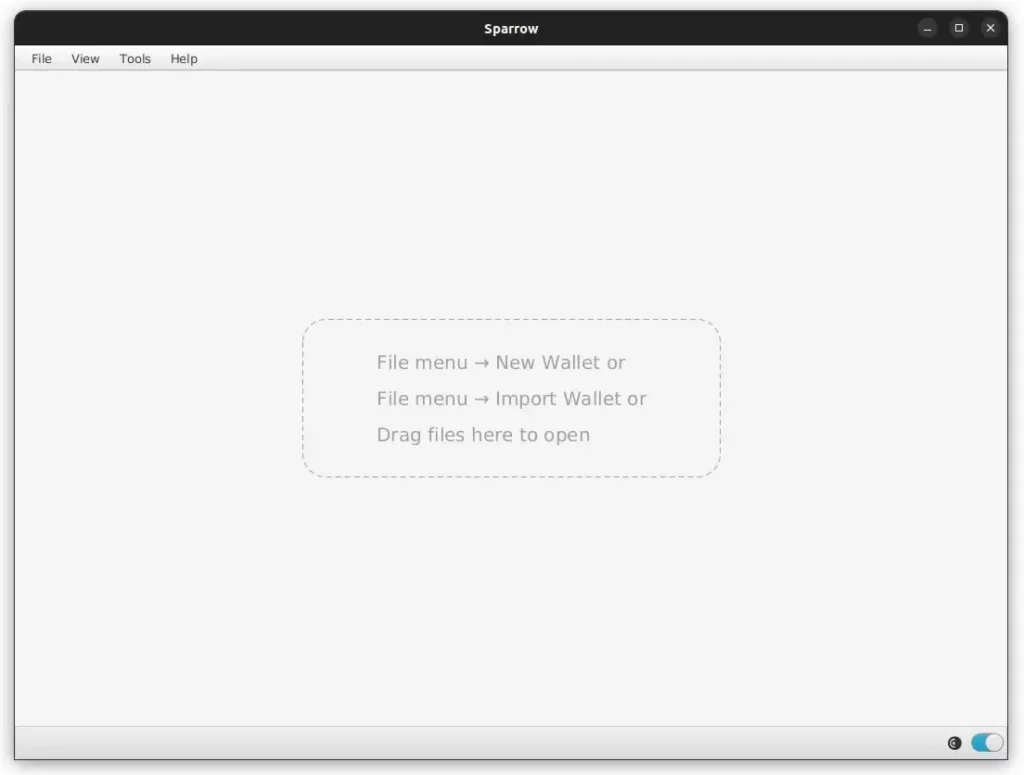
To begin with a software wallet is a software program that allows you send and receive bitcoin as well as see your balance. There are many different PC and mobile software wallets out there such as Sparrow or BlueWallet. As stated above, a hardware wallet is a physical piece of hardware that generates, stores and manages your cryptographic keys in an offline way.
In general you only have two options when using bitcoin:
- Software Wallet Only: Your private and public keys are generated and stored on your software wallet which is on your computer or mobile device. This means the online component (the software wallet) can spend, receive and view funds meaning hackers or other online threats can breach your computer and steal your bitcoin at any time
- Software Wallet With A Hardware Wallet: Your private and public keys are generated and stored on your hardware wallet. Your software wallet only receives a copy of your public key. This means the online component (the software wallet) can only receive and view funds. In order to spend any funds the transaction has to be signed using the private key which is offline and stored only on the hardware wallet
By separating your private key onto a physical device, away from your disgustingly malware infested computer that’s running the software component, it drastically increases the security of your bitcoin storage setup.
We highly recommend to use a hardware wallet or “cold storage wallet” if you’re storing funds that you don’t want to lose. If you’d like to learn about all the other types of wallets such as hot wallets, cold wallets, exchange wallet or custodial wallet check out our article on What Is A Bitcoin Wallet?
Once your funds are secured by a hardware wallet, even if a hacker gets full control of your computer or phone, all they can do is view your crypto wallet. In order to steal (or spend) your crypto assets they would need your hardware wallet to be plugged in. Then they’d also need to push physical buttons on it too somehow and know your PIN code. This extra physical layer makes hacking attacks much harder to execute.
What Is The Best Hardware Wallet?
Most hardware crypto wallets cost anywhere from $60-$200 USD with some of our top recommendations being the BitBox02, Foundation Passport, COLDCARD Mk4, Blockstream Jade, Keystone 3 Pro or SeedSigner.
Note: We do not recommend any Ledger devices such as the Ledger Nano as they do not meet our privacy or security standards. We know they’re a very popular option, especially for beginners, but they are not a good solution and should be avoided.
How To Use A Hardware Wallet
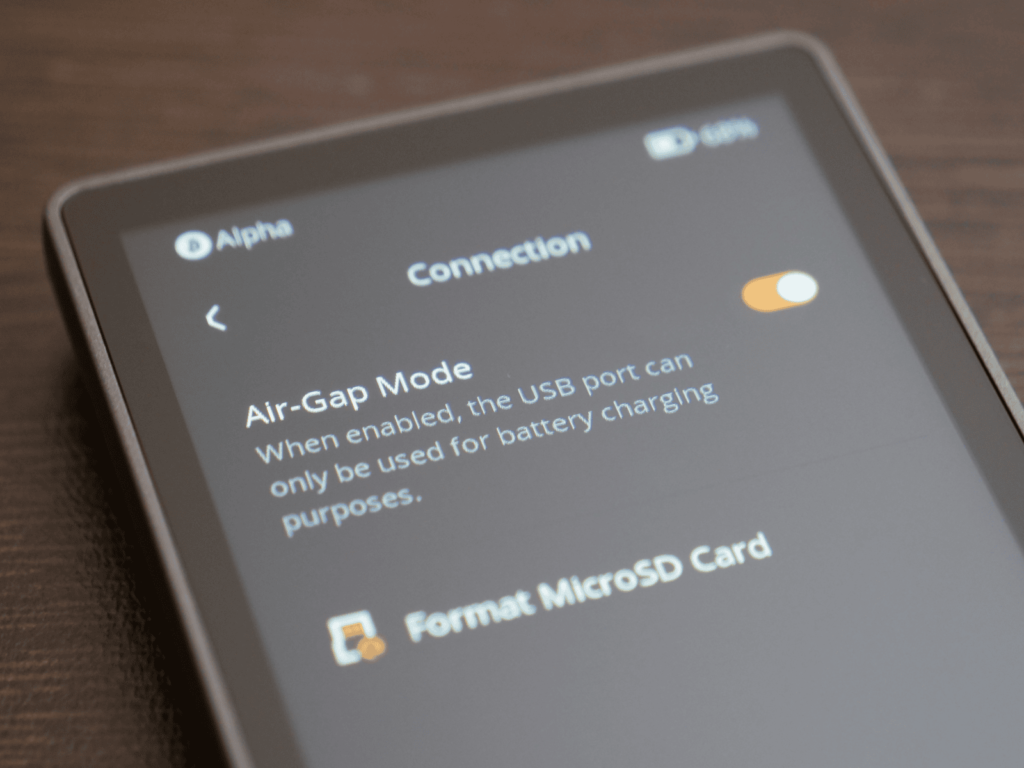
While the exact steps for how each hardware wallet works will be different, in general they all:
- Verify the devices authenticity and that it hasn’t been tampered with
- Have you setup your PIN code to protect the device
- Generate a new private key and setup the wallet
- Have you write down your seed phrase and store it in a secure location
- Give you instructions on how to receive and send funds to the wallet
Many communicate to the software wallet via USB, but there’s also a number of hardware wallets that have no USB, Bluetooth or other connectivity capabilities and only transfer data using QR codes or microSD cards. These hardware wallets are referred to as being Airgap Wallet.
What Are The Disadvantages Of Hardware Wallets?
The biggest disadvantage of using a hardware wallet is that it takes more time and effort when you want to spend your funds. It can also be a bit less user friendly as you have to learn about and interact with both a software wallet and hardware wallet.
As your hardware wallet is the only thing that contains your private keys, if you ever want to spend your funds you must have the physical device, unlock it using your PIN code and use it to sign the transaction first.
For most this extra time and effort is a desirable thing as it’s added security that helps protect your funds. No one wants it to be “quick and easy” to steal all your bitcoin! Another disadvantage can be that the Cryptocurrency hardware wallets you want might not support the specific digital assets you use.
New to Athena Alpha? Start today!
What If I Lose My Hardware Wallet?
First and most importantly, don’t panic. Your bitcoin is not stored on the hardware wallet, only your private keys are. So long as you have a backup of your private keys or seed phrase, all you have to do is purchase a replacement hardware wallet and “import” them in as a new wallet.
Most hardware wallets are protected by a PIN code and are all but impossible to hack into, so it’s unlikely that anyone who finds it will be able to steal your funds. That being said, it’s considered a good idea to transfer your digital assets to another hardware wallet just in case.
What Happens If Your Hardware Wallet Breaks?
If your hardware wallet breaks then again, all you have to do is purchase a replacement hardware wallet and “import” your backed up seed phrase in as a new wallet. In this instance though there’s no need to transfer your funds to another crypto wallet as there’s no risk that your private keys were compromised.
Properly Backing Up Your Hardware Wallet
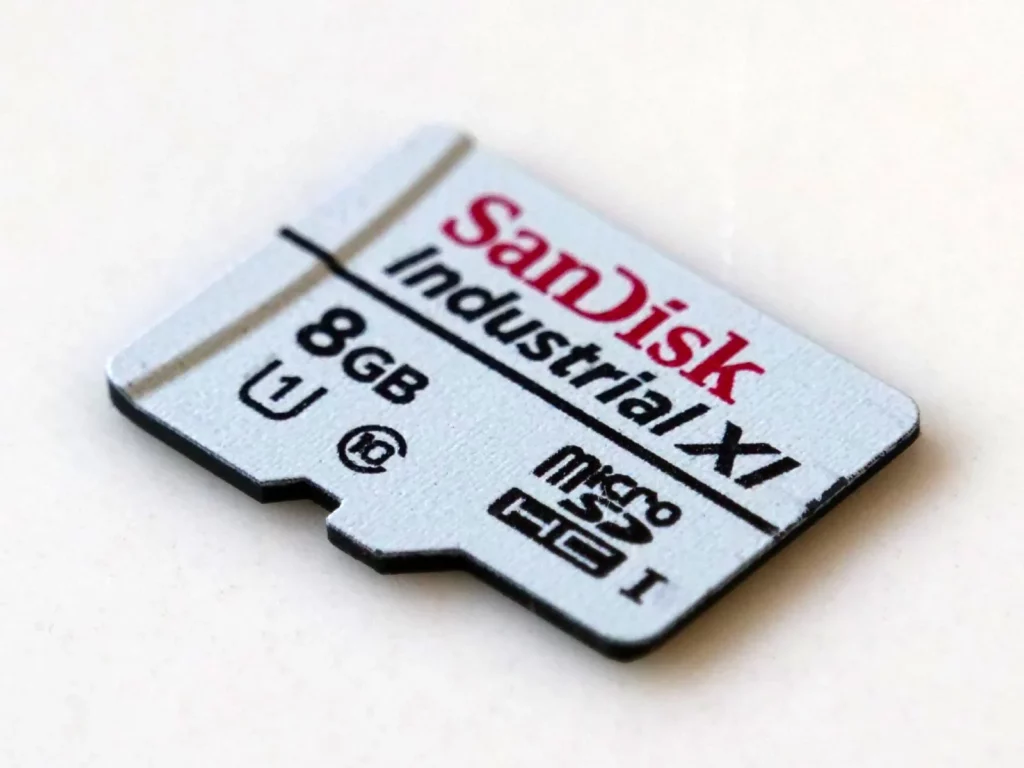
In both the above cases having a proper backup is critical as otherwise all your funds will be lost. As a private key is just data, we recommend you backup your hardware wallets just like any other data stored on a computer or mobile device: by using the tried and true 3-2-1 backup strategy. You should have 3 copies of the data, on 2 different storage mediums, with 1 of them off site.
To do this with a hardware wallet we recommend you have one copy on the actual cryptocurrency hardware wallet, another digital copy on an encrypted microSD card backup and one written on laminated paper or steel plate (the seed phrase backup). The seed phrase backup should then be stored in a secure, off site location.
How To Transfer Crypto To A Hardware Wallet
You can transfer crypto from one wallet to another and even from multiple wallets to a single wallet. You can also transfer it from one hardware wallet to other hardware wallets even if they’re not the same brand or type. This process is a bit outside the scope of this article though, which is why we have a full dedicated guide: How To Transfer Bitcoin To Another Wallet.
FAQ
Do You Need A Hardware Wallet To Invest In Crypto?
No. You can easily buy, send, receive and sell crypto using just software wallets, however it’s highly recommended to use a hardware wallet if you’re managing funds that you don’t want to lose.
Is A Hardware Wallet A Good Idea?
Yes. Good hardware wallets can be as cheap as $60 USD and significantly protect your digital assets from hackers, malware and a whole host of other security threats. Billions of dollars worth of lost crypto could have been avoided simply by having a hardware wallet.
Can Crypto Be Stolen From Hardware Wallet?
No system is ever 100% secure, hardware wallets included. However they do provide the user with near perfect security when used correctly. Short of an attacker breaking into your house and forcing you to unlock it at gun point, your funds cannot be stolen.
Is Coinbase A Hardware Wallet?
No. Coinbase is what’s called an Exchange Wallet and run in a website, similar to how a bank runs your bank account. It’s a custodian wallet and doesn’t use hardware wallet protection.
Do You Need A Computer To Use A Hardware Wallet?
Yes. All hardware wallets require a software wallet component to send and receive bitcoin funds.

